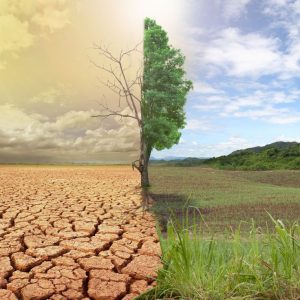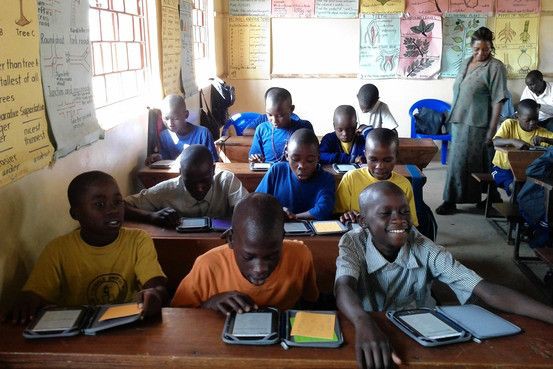Vast arable lands are part of the natural resources that the African continent can effectively make boast about. But the question is; does the continent make judicious use of these lands in the production of food that would survive its people? in search of answers to this question and many like it. The African Leadership Magazine correspondent Confidence Ijeh went to a large-scale farmer, Robert Lubem Aboh in faraway Benue state, the central part of Nigeria.
Mr. Aboh began from his beginning, by telling us what led him into taking farming as a major life venture .
Robert Lubem Aboh: “My passion for farming started as a toddler, growing up with parents who were subsistence farmers, I would always follow them to the farm, and learn what they were doing because that was the source of food and income for the family.
While growing up, the focus became more on education and self-development, but along the line, I had always had a passion for farming and sometime in 2019, I left my job with an education consulting firm, came back, and supported my friend who was already into the Agric space.
Since then, I took over the farm management aspect, and I have been soaring higher ever since.
I am a rice farmer because that is one of the major crops that we grow here, it’s economical and it’s highly valued in our communities, I also farm yam, and also looking at going into sesame seed basically if my resources and capacity would permit.
ALM: With your knowledge of farming from your early years till now, can you tell us what you think about farming in Africa?
Robert Lubem Aboh: “ Farming in Africa in my opinion is still at the infant Stages. We are still crude and primitive in our approach to farming techniques. Before we even bring in the aspect of technology, farming has evolved remarkably, from seedlings to the quality of pesticides and herbicides in use today. The majority of farmers in Africa still believe in the crude way of doing things. Take for example the practice of mix cropping, most farmers just believe that it will be underutilizing farmland if you plant only one crop in a particular space, so you see them planting maize, groundnuts, and maybe beans in the same place. Not minding if it is professionally advisable to do so.
And then in the aspect of technology, most farmers have not come to accept the emergence, relevance, and efficiency of Agric technology. Though this can relatively be attributed to other factors like the availability of capital and the lack of technical know-how. However, it is not a convincing excuse because most rural farmers can afford some of the basic technology needed to enhance food production in Africa but choose not to.
By and large, Farming in Africa still needs adequate awareness/orientation, local support in form of modern inputs and training as well as adequate processing industries to mitigate post-harvest losses which is also a discouraging factor to the farmers.
ALM: You mentioned that most rural farmers can afford the technology needed to enhance food production in Africa, please can you dwell more on that?
Robert Lubem Aboh: “Yes. Most African farmers can afford some basic technology to boost food production. They have the resources; I’ll give you an example.
Currently, in some markets in Benue State, a bag of Sesame seeds goes for N80,000. A farmer who was lucky enough to make up 30 bags of Sesame seeds in the last harvest would have been at least N2,000,000 richer.
Now, the total cost of having a motorized borehole within Benue state would not go beyond N1,500,000. If such a farmer conveniently risks doing a survey and drilling a borehole, the Farmer can afford to produce Sesame seed in both dry and wet seasons. (It normally takes 125 to 135 days for unimproved sesame to reach maturity, but commercial varieties only require 90 -120 days).
Other aspects farmers can utilize the arable land made available by nature to them is to carry out good farm practices such as avoiding bush burning, practicing crop rotation, and planting more trees; these can help in soil regeneration and also help in mitigating flood erosion.
Majorly, the onus hovers on governments and stakeholder organizations to support farmers through training, provision of inputs and adaptable seedlings, soil test research, agricultural waivers, and more agricultural funding to be able to achieve more success in utilizing the abundance of arable land we are blessed with.
ALM: Does the continent need special policies to maximise the use of the available lands?
Robert Lubem Aboh: “Yes. Especially in these times of Climate Change, intense population growth, and the competitiveness brought about by the African Continental Free Trade Area, AfCFTA agreement”.
ALM: Apart from the government, can other bodies, like NGOs, Stakeholders be useful in achieving food security?
Robert Lubem Aboh: “Of course, there are many problems to be solved within the Agricultural Value Chain, that could prove to be too challenging for the government.
It could be as relatable as providing qualitative and or quantitative data in real-time to influence policy-making or being the intermediary link as an off-taker between companies who need Agricultural products and local farmers to avoid post-harvest losses.
By implication, the agricultural value chain is always open to investors, organizations, individuals, or governments as it inevitably provides food security to Africa and serves the common good of humanity”.
ALM: Just a final word on how best Africa Can Maximise the usage of its arable land for food security in the continent.
Robert Lubem Aboh: “The opportunities for growth in the Agricultural Value Chain are vast and realistic. To be able to use these vast lands, they need to be first accessible which calls for adequate security. Governments must be deliberate in tackling security across Africa to enable farmers to maximize their potential.
This will also create an atmosphere for investors to come in and situate processing industries which will help to mitigate post-harvest losses, especially for perishable products.
Other support mechanisms could come in form of tax waivers, low-interest loans, organized Cooperatives, provision of adaptive seedlings, and other lucrative policies that enhance modern, sustainable food production.
- This interview is inexhaustive and would definitely come up with a follow-up



